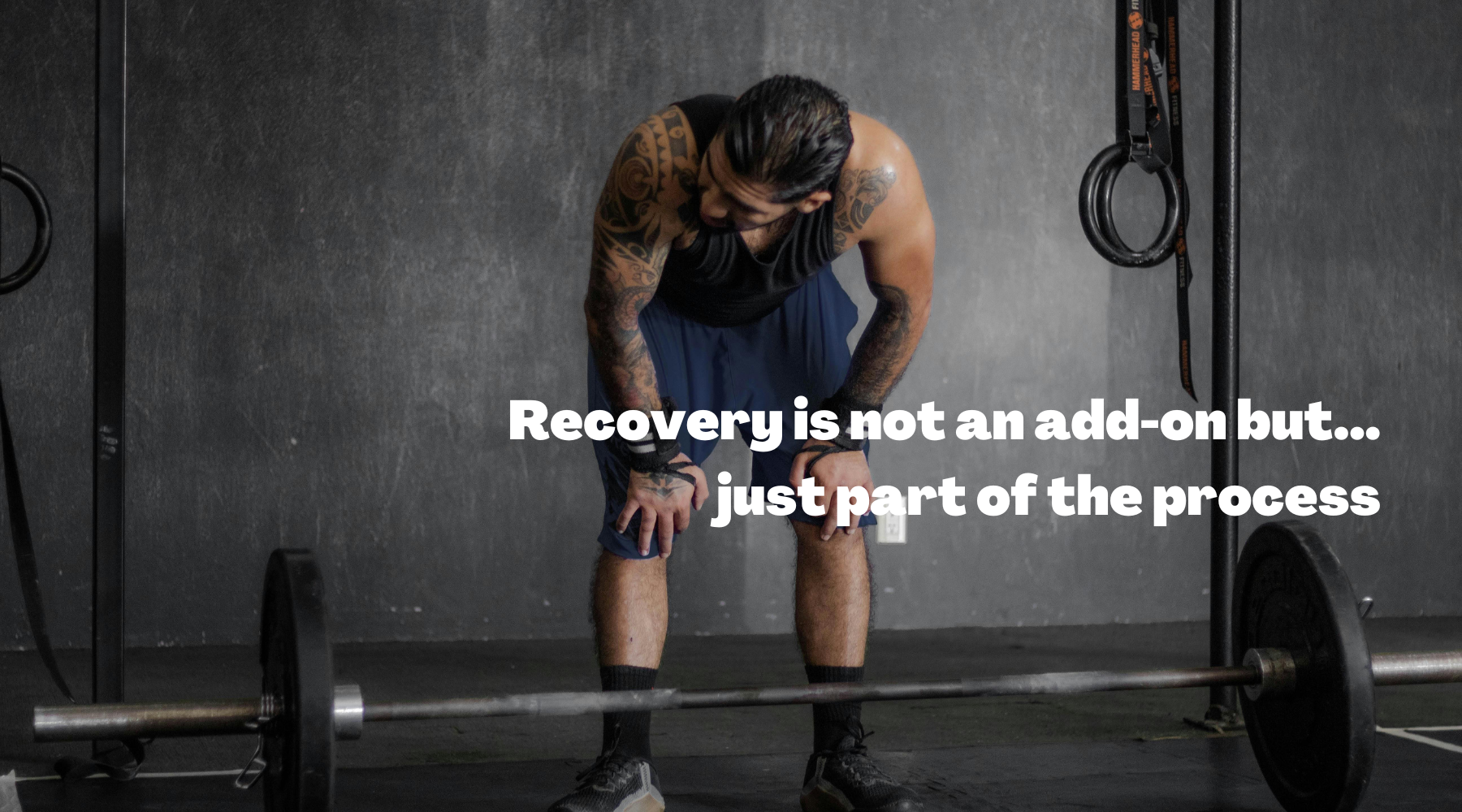Why Recovery Shouldn’t Be Treated Like a Bonus
Nicholas Fadden(And How to Build It Into Your Weekly Routine Like Sleep, Food, and Movement)
We often treat recovery like it’s optional. Like it’s something we’ll get around to—once we’ve trained hard enough, worked long enough, or feel “deserving” of a rest.
But here’s the thing:
Recovery isn’t a luxury. It’s a biological requirement.
Just like sleep, nutrition, and physical activity, your body and mind rely on recovery to keep functioning at their best. The problem is, most people treat it like a reward, not a system.
And the result?
Burnout. Injuries. Fatigue. Plateaued performance. Sleepless nights. That constant low-grade feeling of “off.”
At The Cove, we’re flipping that script.
Because recovery doesn’t need to be complicated, expensive, or something you put off. It just needs to be built into your life like anything else that matters.
🔬 What Happens When You Don’t Recover
When you train, stress, or push your body and mind (which, let’s be honest, most of us do daily), you’re creating a stimulus. That’s good. That’s how you grow.
But the actual improvement—the adaptation—only happens during recovery.
Skip that part, and here’s what builds up instead:
- 🔻 Increased cortisol and stress hormones
- 🔻 Poorer sleep and slower muscle repair
- 🔻 Nervous system fatigue (hello, short fuse and brain fog)
- 🔻 A higher risk of injury and illness
- 🔻 That frustrating feeling of “why does everything feel harder?”
Recovery isn’t rest for rest’s sake.
It’s what lets your body come back stronger, clearer, and more ready for the next one.
✅ The 3 Pillars of Integrated Recovery
At The Cove, we focus on recovery as a regular rhythm, not a once-in-a-while reset. Just like you don’t eat a giant salad once a month and call it nutrition—recovery works best when it’s routine.
Here’s what that looks like:
1. Nervous System Regulation
Contrast therapy (our hot and cold plunges) helps shift your body from fight-or-flight mode to rest-and-repair. This improves heart rate variability, lowers baseline stress, and supports better sleep.
2. Muscle and Circulation Support
Hot water immersion boosts circulation, nutrient delivery, and metabolic waste removal—especially after hard training or long workdays. Cold immersion helps reduce inflammation and supports recovery at the tissue level.
3. Immune Function + Resilience
Regular recovery helps reduce systemic inflammation and supports immune markers—meaning fewer colds, fewer injuries, and better energy through the week.
Need proof?
A recent study from the American Journal of Physiology (June 2025) found that hot water immersion outperformed both traditional and infrared saunas in improving thermoregulatory, cardiovascular, and immune responses.
This is why we don’t just offer saunas—we offer the method that works better.
🔁 How to Make Recovery Part of Your Routine
Start thinking about recovery the way you do about food, sleep, or brushing your teeth. It doesn’t have to take long—it just has to happen often enough to matter.
Here’s how our clients do it:
- 🛁 1–2 contrast therapy sessions per week
- 💨 Add air compression for extra circulation support
- 🧘♂️ Stretch, breathe, and chill post-tub to round it out
- ⏱️ Book a 30-minute or 60-minute spot—get in, get it done
We’re here to make it easy, accessible, and effective. No fluff. Just the tools you need to stay sharp, recover faster, and keep moving forward.
📍 Built for People Who Move
Whether you're a CrossFitter, runner, cyclist, mountain athlete, or just someone who trains hard and works harder—we get it.
Recovery isn’t a reward.
It’s a tool.
It’s how you stay ready for what’s next.
Come See Why It Works
📍 Find us at 15th & Clyde, Ambleside, West Vancouver
🌐 Book or drop in: www.covesport.com
📞 Questions? Call us at 604-210-1100
Recover | Recharge | Ready.
Because this isn’t about pampering—it’s about showing up stronger tomorrow.

